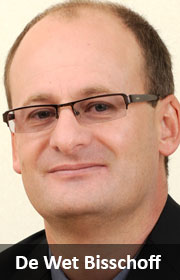 Many eyes were turned towards parliament last month for a portfolio committee discussion over possible regulation of over-the-top (OTT) service providers.
Many eyes were turned towards parliament last month for a portfolio committee discussion over possible regulation of over-the-top (OTT) service providers.
Now, communications regulator Icasa is facing a difficult situation. It must find a way to balance regulation, customer preference and providing a workable environment for operators. It’s a complex issue; even more so for consumers, who are looking to understand what the potential decision might mean for them.
OTTs include Skype, WhatsApp, YouTube and Viber, which bypass traditional distribution channels to deliver a product over the Internet. At the crux of the matter is the belief by operators that OTTs “piggyback” on existing infrastructure, without contributing to them. They use the operators’ mobile and broadband networks to deliver services such as messaging, video and music directly to consumers.
The operators’ arguments speak to the financial realities on the ground. The increased usage of OTT services is placing notable pressure on data networks. As a result, they are required to invest increasingly more capital in meeting consumer demand for high-speed data. The operators assert that this doesn’t equate to comparable revenues from the increased use of OTTs.
There is merit to the argument that this could eat into the operators’ overall competitiveness. Contrary to the explosive growth that operators experienced in the mid-2000s, the next few years will see growth slow — the GSM Association has reported that African providers will experience only 6% growth in mobile subscribers through to 2020. However, this is a global trend rather than a regional one, and there is still scope for operators to survive and even thrive. Industry analysts predict that when it comes to mobile subscribers, Africa will be second only to Asia in growth patterns.
The OTT providers, for their part, argue that the operators’ calls for regulation are heavy-handed and will stifle competition and innovation. The regulations, they argue, wouldn’t meaningfully impact the major players like Microsoft and Facebook, but would cripple any new players looking to enter the market. Services such as WhatsApp and Skype have also become critical to economic growth in South Africa, and restricting access to these services could have a significant effect on small business.
The spectre of net neutrality
One sometimes overlooked factor in this debate is network neutrality, the principle that all data is treated the same, regardless of the source. With the department of telecoms & postal services showing support for net neutrality, South Africa is expected to draft regulations around it in the future. This has the potential to further exacerbate the issue of network costs versus revenues.
For operators, net neutrality could take away a potential means by which high data usage services can contribute to the investment of high-speed networks. A possible compromise between operators and OTT providers could be to charge international services more for priority services, which would effectively subsidise local providers.

How does this debate ultimately impact the consumer? It will all depend on whether a compromise can be reached. The ideal outcome of the hearings will be for both parties to find an equitable solution, driving forward network and data growth. This is a real possibility, as OTT services provide a viable alternative revenue stream for operators. We’ve seen various partnerships over the years, wherein the two have worked side by side to ensure operators are generating more revenue, while increasing their use of OTT services.
Furthermore, operators need OTT players because, as seen in most markets in Africa, OTT provider-operator partnerships have been instrumental in driving up data network usage. As usage increases, we should see the networks become more optimised to deal with it. The long-term prospect for the consumer would then be increased access to high-speed data, and at a lower cost.
With Icasa’s announcement that it will launch an inquiry into the impact of OTT services on the data services market over the next year, we will have ample opportunity to explore this debate further. So far, it’s not clear whether operators and OTT providers can find that middle ground. One thing is certain, however, OTT services and operators need each other, and sooner or later, something will have to give.
- De Wet Bisschoff is MD of Accenture Communications, Media and Technology for sub-Saharan Africa

